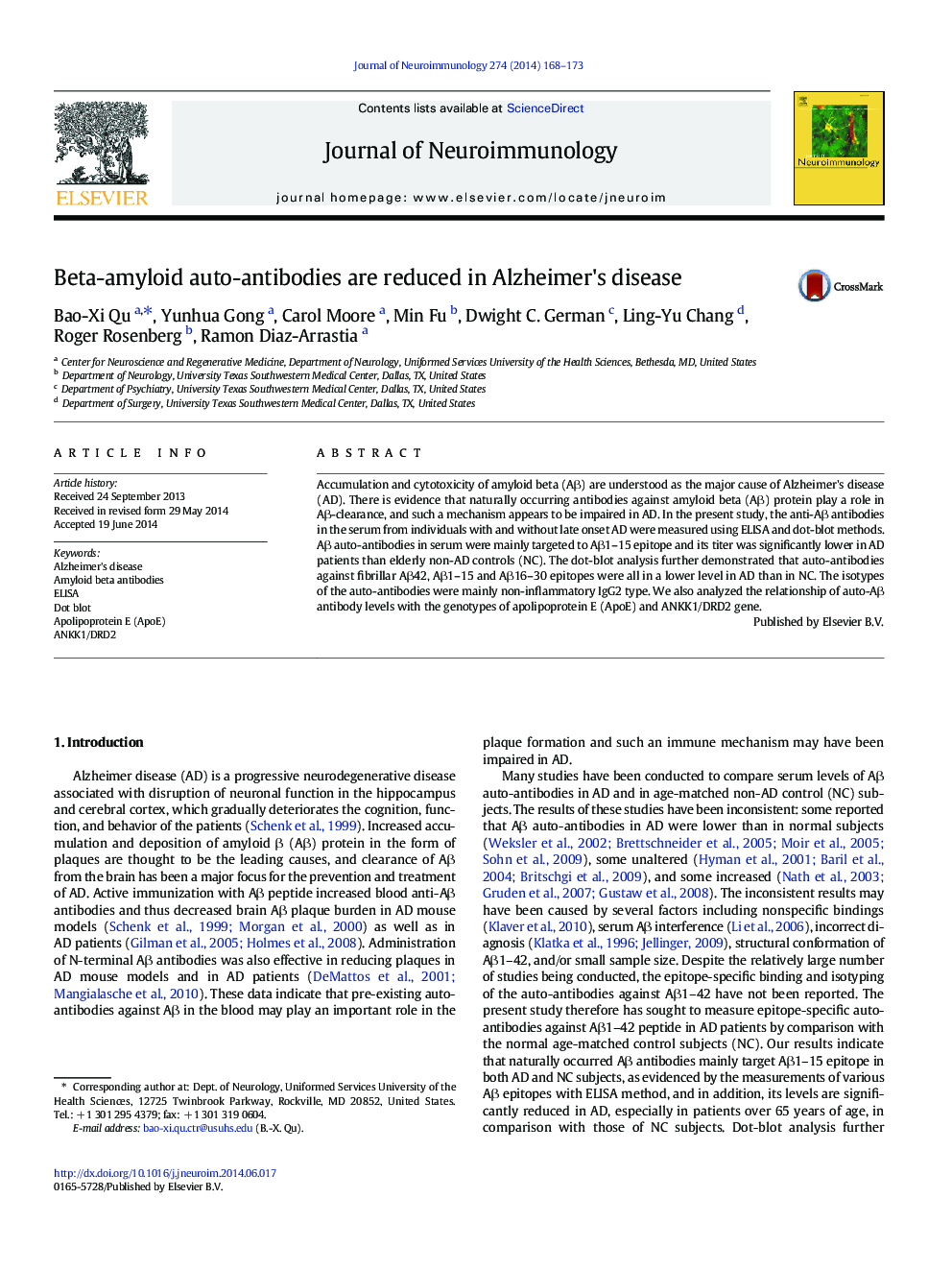| Article ID | Journal | Published Year | Pages | File Type |
|---|---|---|---|---|
| 6020554 | Journal of Neuroimmunology | 2014 | 6 Pages |
Abstract
Accumulation and cytotoxicity of amyloid beta (Aβ) are understood as the major cause of Alzheimer's disease (AD). There is evidence that naturally occurring antibodies against amyloid beta (Aβ) protein play a role in Aβ-clearance, and such a mechanism appears to be impaired in AD. In the present study, the anti-Aβ antibodies in the serum from individuals with and without late onset AD were measured using ELISA and dot-blot methods. Aβ auto-antibodies in serum were mainly targeted to Aβ1-15 epitope and its titer was significantly lower in AD patients than elderly non-AD controls (NC). The dot-blot analysis further demonstrated that auto-antibodies against fibrillar Aβ42, Aβ1-15 and Aβ16-30 epitopes were all in a lower level in AD than in NC. The isotypes of the auto-antibodies were mainly non-inflammatory IgG2 type. We also analyzed the relationship of auto-Aβ antibody levels with the genotypes of apolipoprotein E (ApoE) and ANKK1/DRD2 gene.
Related Topics
Life Sciences
Immunology and Microbiology
Immunology
Authors
Bao-Xi Qu, Yunhua Gong, Carol Moore, Min Fu, Dwight C. German, Ling-Yu Chang, Roger Rosenberg, Ramon Diaz-Arrastia,
